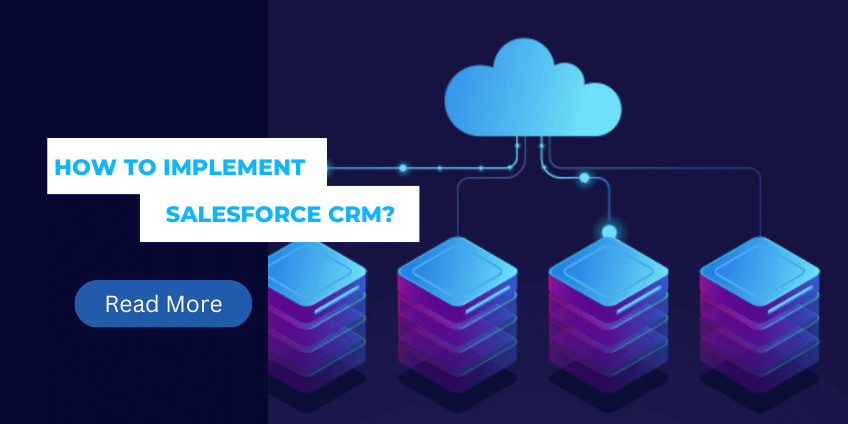Salesforce Data Cloud
In today’s data-driven world, businesses are inundated with vast amounts of data from various sources. Managing and leveraging this data effectively is crucial for gaining a competitive edge. Salesforce Data Cloud is a powerful solution that enables organizations to integrate, manage, and analyze their data seamlessly. By utilizing Data Cloud, businesses can harness the full potential of their data, make informed decisions, and drive growth. This comprehensive guide will explore the key features, benefits, and best practices of Salesforce Data Cloud, providing insights into how it can transform your data management strategy.
Understanding Salesforce Data Cloud
What is Salesforce Data Cloud?
Salesforce Data Cloud is a robust data management platform that allows businesses to integrate, store, and analyze data from multiple sources. It provides a unified view of data, enabling organizations to gain valuable insights and make data-driven decisions. With Salesforce Data Cloud, businesses can break down data silos, enhance data quality, and ensure data security, making it an essential tool for modern enterprises.
Key Features of Salesforce Data Cloud
1. Data Integration
Data Cloud excels in data integration, allowing businesses to consolidate data from various sources, including CRM systems, ERP systems, social media platforms, and more. This integration ensures that all data is accessible from a single platform, providing a holistic view of the business.
2. Data Storage and Management
Salesforce Data Cloud offers scalable data storage solutions that can accommodate vast amounts of data. It provides tools for data governance, ensuring that data is accurate, consistent, and secure. This makes it easier for businesses to manage their data and comply with regulatory requirements.
3. Data Analytics and Insights
One of the standout features of Data Cloud is its powerful analytics capabilities. The platform provides advanced analytics tools that allow businesses to analyze their data, identify trends, and gain actionable insights. These insights can drive strategic decision-making and help businesses stay ahead of the competition.
4. Data Security
Data security is a top priority for Data Cloud. The platform includes robust security measures to protect sensitive data from unauthorized access and breaches. This ensures that businesses can trust their data is safe and secure.
Benefits of Salesforce Data Cloud
Unified Data View
Salesforce Data Cloud provides a unified view of data, breaking down silos and enabling businesses to see the big picture. This holistic view allows for better decision-making and more effective strategies.
Improved Data Quality
With tools for data governance and management, Data Cloud ensures that data is accurate and consistent. This improves the overall quality of data and makes it more reliable for analysis and decision-making.
Enhanced Customer Insights
By integrating data from various sources, Data Cloud provides deeper insights into customer behavior and preferences. This enables businesses to create personalized experiences and improve customer satisfaction.
Scalability and Flexibility
Salesforce Data Cloud is designed to scale with your business. Whether you have a small amount of data or large datasets, the platform can accommodate your needs. Its flexibility allows for customization and integration with other tools, ensuring a seamless data management experience.
Use Cases for Salesforce Data Cloud
- Audience Targeting: Businesses can use Data Cloud to identify and target specific audience segments based on demographics, behavior, and interests, allowing them to deliver more personalized and relevant messaging to their target audience.
- Cross-Channel Marketing: Data Cloud enables businesses to activate their data across multiple marketing channels, including email, social media, display advertising, and mobile, ensuring a consistent and cohesive customer experience across all touchpoints.
- Customer Journey Optimization: By analyzing customer data and tracking interactions across the customer journey, businesses can identify opportunities to optimize the customer experience, reduce friction points, and drive conversions.
- Campaign Measurement and Optimization: Data Cloud provides businesses with valuable insights into the performance of their marketing campaigns, allowing them to track key metrics, identify areas for improvement, and optimize their strategies for maximum effectiveness.
Best Practices for Implementing Salesforce Data Cloud
1. Define Clear Objectives
Before implementing Salesforce Data Cloud, it’s essential to define clear objectives. Determine what you want to achieve with the platform, whether it’s improving data quality, gaining deeper customer insights, or enhancing data security. Clear objectives will guide your implementation process and help measure success.
2. Ensure Data Integration
Effective data integration is crucial for leveraging Data Cloud. Ensure that all relevant data sources are integrated into the platform, providing a comprehensive view of your business data. This will enhance the accuracy and reliability of your insights.
3. Utilize Advanced Analytics
Leverage the advanced analytics tools provided by Data Cloud to analyze your data and gain actionable insights. Regularly monitor and analyze data to identify trends, opportunities, and areas for improvement.
4. Prioritize Data Security
Data security should be a top priority when implementing Data Cloud. Implement robust security measures and ensure that all data is protected from unauthorized access and breaches. This will build trust and confidence in your data management strategy.
Additionally, if you’re new to Salesforce and need guidance on setting up your CRM, our article on How to Implement Salesforce CRM? offers a step-by-step approach to getting started.
Conclusion:
Salesforce Data Cloud is a transformative solution for businesses looking to optimize their data management strategy. By integrating, managing, and analyzing data from multiple sources, Data Cloud provides a unified view of data, enhances data quality, and drives actionable insights. Implementing Data Cloud with clear objectives, effective data integration, advanced analytics, and robust security measures will help businesses achieve significant growth and stay ahead in the competitive landscape.
Author Spotlight

Chandan K. Sharma
An entrepreneur and author with a deep passion for technology, CRM, and digital marketing. Chandan is a versatile content creator and expert in CRM, sales automation, and marketing automation. He combines creativity with strategic thinking to deliver innovative, scalable solutions that help businesses streamline operations and drive growth.
